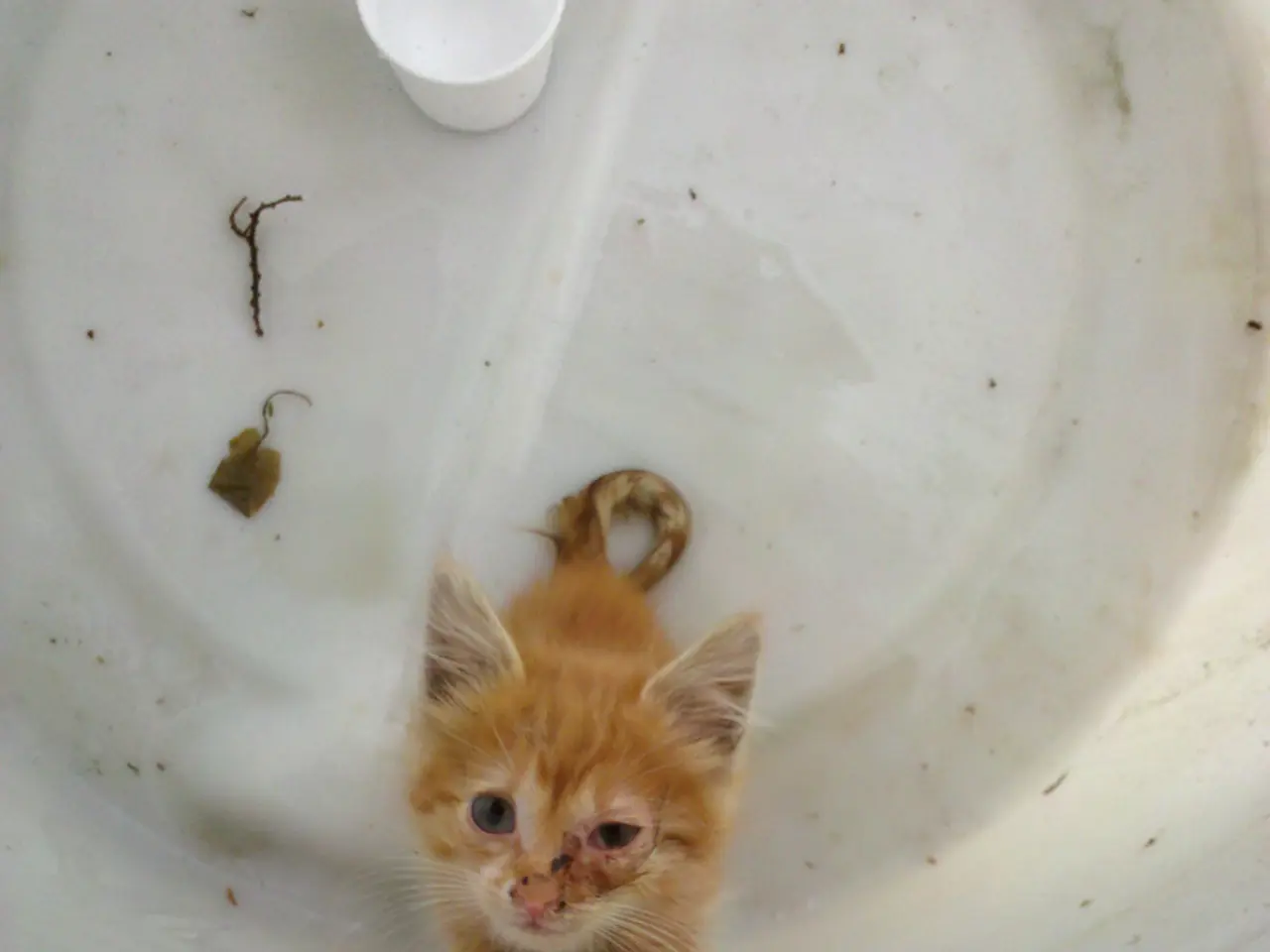Municipality in Germany forbids consumption of tap water
In the picturesque town of Lich, near Gießen, a concerning development has emerged. Recent tests on samples from the local water supply network have revealed the presence of intestinal bacteria known as enterococci [1].
To safeguard the health of its citizens, the municipality of Lich has issued a boil water advisory. This advisory extends beyond just consuming water. It also applies to activities such as brushing teeth and wound disinfection in Lich [2].
While it's important to note that the waterworks in our country obtain drinking water from nature and test it for safety before it reaches households, the discovery of enterococci is a cause for concern. These bacteria can cause dangerous infections such as urinary tract infections, peritonitis, and in rare cases, heart valve infections [3].
Meanwhile, across the Atlantic, the U.S. places great emphasis on ensuring the safety of its drinking water. The Safe Drinking Water Act (SDWA) is the primary regulation, mandating the Environmental Protection Agency (EPA) to set and enforce water quality standards for every public water system (PWS) in the country [4].
Key regulations under the SDWA include the National Primary Drinking Water Regulations (NPDWRs), which limit specific contaminant levels in public water systems, and Annual Consumer Confidence Reports (CCRs), which provide customers with yearly reports detailing water sources, detected contaminants, and compliance with drinking water regulations [4].
Despite these measures, studies indicate about 7-8% of community water systems in the U.S. experience SDWA health violations annually, with associated health impacts such as gastroenteritis [4].
It's worth noting that the water cycle in our country is not always flawless, and a chemical has been spreading more and more in German drinking water [5]. However, in the case of Lich, the boil water advisory does not affect showering.
The EPA enforces compliance with SDWA standards through oversight of states, localities, and water suppliers. Violations trigger corrective actions, and public reporting of violations through CCRs ensures accountability [4].
In Lich, the municipality is working diligently to address the enterococci issue and ensure the safety of its water supply. Citizens are advised to boil tap water and let it cool for over ten minutes before consuming it, brushing teeth, or using it for disinfection purposes [2].
[1] https://www.hna.de/nachrichten/hessen/enterokokken-im-trinkwasser-in-lich-boil-water-warning-ausgeloescht-a-116061157.html [2] https://www.hna.de/nachrichten/hessen/boil-water-warning-in-lich-verlauft-ruhig-a-116046808.html [3] https://www.cdc.gov/parasites/enteric-bacteria/enterococcus/index.html [4] https://www.epa.gov/dwreginfo/safe-drinking-water-act-sdwa [5] https://www.dw.com/en/perfluorinated-chemicals-found-in-german-drinking-water/a-53168352
In the face of the presence of enterococci in the Lich water supply, citizens are advised to be cautious not only when consuming water but also for activities like brushing teeth and wound disinfection, as health-and-wellness could be impacted. The U.S., in an effort to ensure safety, implements stringent science-based regulations such as the National Primary Drinking Water Regulations and Annual Consumer Confidence Reports, making the water supply adhere to specific contaminant limits and promoting transparency.




